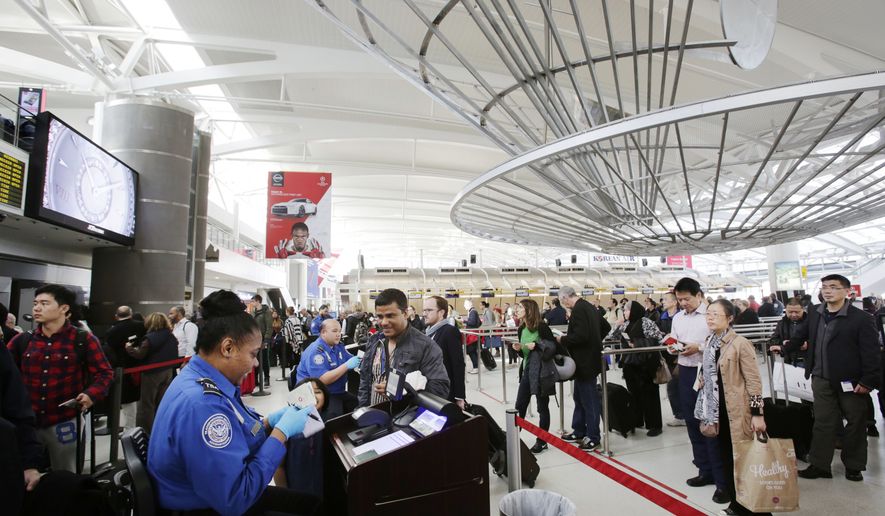The FBI’s no-fly list contains about 81,000 names, but fewer than 1,000 of those are “U.S. persons,” a top lawmaker revealed Monday, giving the outlines of the secretive program on the floor of the Senate.
Another list maintained by the FBI, dubbed the “TSA selectee list” because it triggers higher scrutiny but doesn’t ban flying, has some 28,000 records, of which fewer than 1,700 are U.S. persons, Sen. Dianne Feinstein said as she argued for denying gun sales to those who appear on the lists, in the wake of the Orlando terrorist shooting.
Democrats say those lists and a broader list, the Terrorist Screening Database, with about 1 million names, should be used to deny potential terrorists lethal weapons. Mrs. Feinstein has proposed banning those who appear on any of the lists from being able to clear a background check enabling them to purchase a firearm.
Republicans argue the lists are too broad, and are riddled with errors that, if followed, would deny law-abiding Americans their Second Amendment rights without due process of law.
The lists have been controversial for years, and how someone gets on them is shrouded in mystery.
Mrs. Feinstein, a past chairwoman of the Senate intelligence committee, said the FBI, which maintains the lists, bases listings on domestic or foreign intelligence reports, which are vetted for accuracy.
Her post-Orlando proposal would give the attorney general the power to stop gun sales to those who appear on the lists, but would require the purchasers to be notified so they can go to court to challenge their listing — though she said secrecy could be maintained if the FBI is still pursuing its investigation.
Several thousands people listed in one of the FBI’s databases have tried to buy firearms, and an oversight report found 91 percent of them were successful.
Sen. John Cornyn, Texas Republican, said denying someone gun-rights based on “some secret list created by the Obama administration” violates the Constitution.
Mr. Cornyn’s counterproposal would allow the government to deny a sale for up to three days if someone has been investigated in the last five years for terrorism. The government during that time would have to make its case to a judge, or else the sale would eventually go through.
• Stephen Dinan can be reached at sdinan@washingtontimes.com.




Please read our comment policy before commenting.